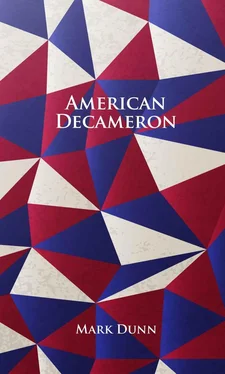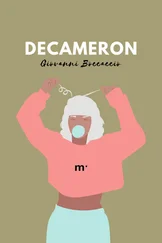It had Jocelyn wishing for her mother’s death, for which she felt horribly guilty.
Death came during the monsoon rains of the following August. Mama Lucero caught a chill and went to bed with a high fever. The illness taxed her fragile heart. The cause of death was put down as congestive heart failure.
There was a family conference. It was decided that Jocelyn should have the house. It was in her mother’s name, and now it would be put in Jocelyn’s name. Ruben agreed that this was the right thing to do. The consensus among the four older siblings was that their baby sister could keep working for their father if she liked. Or she could do something entirely different with her life. She had permission now.
Jocelyn nodded and agreed that everything being offered to her was fair and generous. Inside, though, her heart had hardened toward her siblings. She was forty. She had tended to her mother since she was a little girl. In her spare time she had driven to Old Town and worked behind a counter selling Native American jewelry her father had purchased wholesale from the local pueblos. She had made friends with a couple of the neighboring storekeepers, but few others.
Along the way she had fallen in love with an older man named Ernesto, a large man with jet-black hair and bright green eyes, who claimed her virginity at the age of thirty-six in the little apartment he kept over the restaurant. He had asked her to marry him, knowing that her answer could only be “No, not now. Not just yet.”
He seemed to understand.
Or was it that he had proposed marriage knowing fully well what the answer would be? Because this was Ernesto’s way of keeping Jocelyn on the hook: taking her up to his rooms above the restaurant until someone better came along.
Rosa. The whore.
Today was September 14. The rains had tapered off. Fall was in the air. Jocelyn sat in her car. The radio station was playing the song — the song she now despised. She was stopped at the light, waiting to make her left turn onto her street. The house was on Candelaria. It was one of the many streets in Albuquerque’s North Valley that still carried vestiges of the neighborhood’s farming and ranching past. The street came to a dead end near the Rio Grande, at a place where cottonwood trees grew in the sandy soil of the river’s gallery forest.
She didn’t want to make the turn. The light had changed to green and the way was clear to go, but she couldn’t make herself do it. She didn’t even roll forward into the intersection. There was a car behind her. The driver was being polite. He wasn’t honking, though she clearly should be turning so that he could then make his turn.
The light turned yellow.
Jocelyn Lucero didn’t turn.
The light turned red. Jocelyn could see through her rearview mirror the middle-aged man pounding his fist upon his steering wheel in frustration.
She didn’t want to make the turn because she didn’t want to go home. She had spent forty years of her life in that stucco house, watching each of her three brothers and her sister walk out the door and come back only on his or her own terms. She had stayed home because it was expected of her. And now she was supposed to go home because there was no place else for her to go.
The light turned green. The man behind her tapped his horn lightly.
This time she cooperated. She pulled up. When the way was clear, she made her turn. She drove down Candelaria, a residential street with every house different from the one next to it. The North Valley was home to people who didn’t care what the house next to them looked like. Sometimes it wasn’t a house at all; it might be an old barn or even a sheep pen.
This was old Albuquerque. This was The Valley.
Jocelyn slowed as she approached the house. The driveway was empty. Her father was staying a little late at the store. She had said she would go home and start dinner for the both of them. Instead, she kept driving. She passed the house and took the street to the place where it came to an end. She parked her car and walked to the river. She had been coming here for years — ever since she was a young girl. Every fall she came to see the majestic cottonwoods put on their leafy coats of brilliant yellow. There were no oranges or reds allowed in this southwestern bosque — only this single, all-pervasive color, like liquid sunshine dripped upon these gnarled, defiant giants of the desert.
She remembered a picnic she once had with Ernesto beneath these trees. He had said he would remain patient, because he loved her. “My love isn’t going anywhere, Jocelyn.”
Today the trees were green. The wispy cotton they had shed in early summer had been blown away. The path through the bosque was choked by seasonally opportunistic weeds and wild grasses. Jocelyn walked along the river’s edge. She looked up at the houses perched upon the western bluff. The forest was too dense for her to see the mountains that towered behind her — the ones given the name Sandia , Spanish for “watermelon,” because of the watermelon-pinkish color they took on in the waning light of the winter sunsets.
There were Canada geese wading near a sand island in the middle of the river. Jocelyn listened to the sounds of the place where she had grown up: the flutter and cooing of the ubiquitous mourning doves overhead, the distant barking of dogs in this city of canine hegemony, the gentle rustle of a horse brushing the crowding thicket along a nearby bridle trail, the gurgle of the river current purling over rocks and errant branches and other river clutter at her feet.
She loved this city for the sense of place and belonging that it gave her, but she hated it for having held on to her for too long — like the cottonwoods, forever stingy about dropping their leaves. They would shed them only reluctantly, when they were dried and brown and crumbling, and only when the winds shook some sense into their branches. Who was to blame? Her mother needed her, and she didn’t want to make a stand. She’d known young women who did — who then became ostracized by family members who had won their own family lotteries of gender and age and didn’t understand why their little sister didn’t accept her fate with equanimity.
She thought of Ernesto and the way he had wanted to make love to her in the stand of flimsy elms as covert as a chain-link fence. Oh how she had protested, but oh how it had stirred her, had made her feel alive, had made her feel independent even as she was submitting to someone else who had his own idea of what it was that she ought to be doing.
She loved him, of course.
Or did she?
Was Ernesto simply someone who had come along at the right time — when she needed to be loved for the woman she so wanted to be?
They were going to run the restaurant together. They were going to open other Luna’s Restaurant in the Northeast Heights, in Bernalillo, perhaps even in Santa Fe. Ernesto’s father, Silverio, had been content never to dream big.
Jocelyn and Ernesto dreamed big. They aimed high.
“Someday, cariño . Someday soon, yes?”
Someday.
Now Jocelyn felt betrayed. She kicked a rock into the river. She walked back to her car.
Her sister Olivia was waiting at the house. “Weren’t you supposed to be home at five thirty?”
It was twenty past six.
“What do you want, Olivia?” asked Jocelyn. “Why are you here?”
“I need Mama’s recipe for calavacitas. I’m having some people over tomorrow night.”
“You’ve watched Mama make it all your life. You’ve watched me make it. You don’t remember what goes in it?”
“What’s wrong?”
“What do you mean, ‘what’s wrong?’ I come home a few minutes late to a house that I assumed would be empty only to find you standing here making demands.”
Читать дальше












